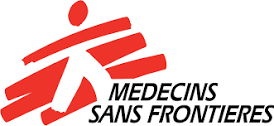Ceasefire in Gaza: Humanitarian aid must flow immediately
The announcement of the first phase of the ceasefire in Gaza brings a welcome moment of relief for exhausted, starved, and grieving Palestinians and a great relief to the families of all hostages — but it comes after more than two years and over 67,000 lost lives.
While we welcome the ceasefire, it does not mark the end of this horrendous suffering — people in Gaza are left to survive amid the ruins of what was once their home, facing immense medical, psychological, and material needs.
“The feeling of our colleagues and the people around us is one of hope, a lot of hope, wishing that this nightmare will finally stop and they will be able to be at peace, be able to recover from their trauma, both physical and mental. But there's also a lot of uncertainty of what is going to happen, what are the next steps,” says Jacob Granger, MSF emergency coordinator in Gaza.
The ceasefire must be respected and sustained because it's the only way that will allow care to be provided at the scale people desperately need — something that was impossible under siege and bombardment. In the long term, we hope to see this ceasefire leading to efforts to rebuild the Strip, including restoring the shattered healthcare system. The most basic necessities are still urgently needed in Gaza: medical equipment, medicines, food, water, fuel, and adequate shelter for two million people who will face the approaching winter without a roof over their heads.
This ceasefire must be accompanied by an immediate massive and sustained scale-up of aid into and across the Strip, including the north. We urge the Israeli authorities to allow a sufficient and unimpeded flow of humanitarian assistance and to authorize medical evacuations for patients in need of urgent specialist care. At the same time, the UN-led humanitarian coordination mechanism must be reinstated to guarantee safe and impartial access to aid for those in need, wherever they are in the Gaza Strip.
Voicenote from Jacob Granger, MSF emergency coordinator in Gaza:
Voicenote:
251010_Jacob Granger Ceasefire.mp3
MP3 4.4 MB
Transcription:
Transcription Jacob Granger, MSF Emergency Coordinator in Gaza.pdf
PDF 36 KB
Hannah Hoexter
